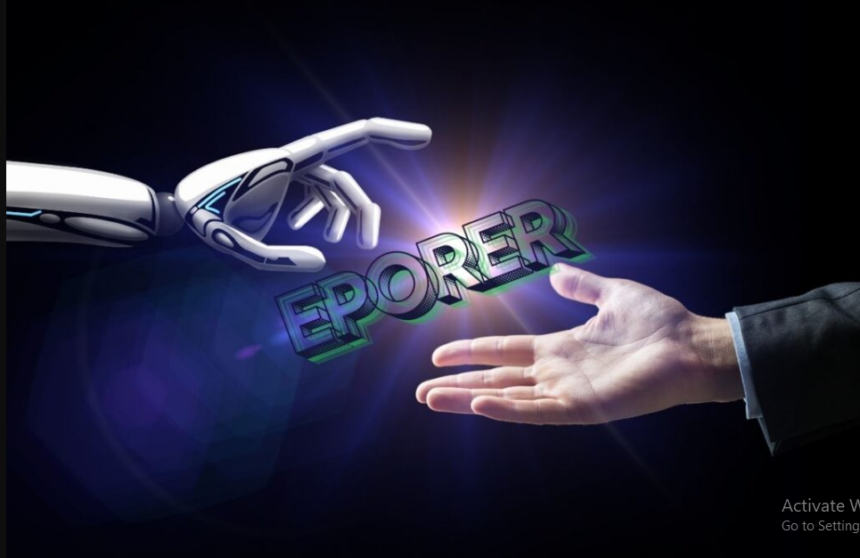Introduction:
An emperor is a sovereign ruler of an empire, which is a vast and complex territory often consisting of several nations or regions. Throughout history, emperors have wielded immense power, and their influence has shaped the political, social, and cultural landscapes of the world. Although the title of emperor is not as commonly used today as it once was, it remains a symbol of leadership, authority, and dominance. In this article, we will explore the concept of an emperor, the history behind the title, its significance in different cultures, and how it has evolved over time. We will also address some frequently asked questions to provide a comprehensive understanding of this prestigious title.
The Origin and Evolution of the Title “Emperor”
The term “emperor” has its roots in the Latin word imperator, meaning “commander” or “ruler.” Originally, the title was used by military leaders in the Roman Republic who were granted supreme command over the army for a limited time. However, as the Roman Republic transitioned into the Roman Empire, the title imperator began to represent the supreme ruler of the entire Roman Empire. The first emperor of Rome, Augustus, was officially crowned in 27 BCE, marking the beginning of imperial rule in Rome.
Augustus, also known as Octavian, brought an end to the Roman Republic after years of civil war. By consolidating power and creating a new political structure, Augustus became the first in a long line of emperors who would rule over the Roman Empire for centuries. The title emperor was passed down through generations, and it came to symbolize not only military prowess but also political authority and governance.
As the Roman Empire expanded, the emperor’s role became more complex. Emperors were responsible for overseeing the administration, defending the empire’s borders, and ensuring that the laws were enforced. The emperor also played a key role in the empire’s cultural and religious life, often being deified after death.
The Role of Emperors in Various Civilizations
Roman Empire
In the Roman Empire, the emperor was the ultimate authority. Emperors were not only political and military leaders but also religious figures. Many emperors were deified after their deaths, becoming gods in the eyes of the people. The Roman emperor’s authority was considered absolute, and they often had control over the military, finances, and the legal system. The emperor was expected to provide stability, ensure the prosperity of the empire, and protect its citizens.
The Roman Empire reached its peak under emperors such as Trajan and Hadrian, who expanded the empire’s territories to their greatest extent. However, the empire eventually split into two parts: the Eastern Roman Empire (Byzantine Empire) and the Western Roman Empire. Despite the fall of the Western Roman Empire in 476 CE, the Eastern Roman Empire continued for almost another thousand years.
Chinese Empire
The title of emperor was also prevalent in China, where it has been used for thousands of years. The first emperor of China, Qin Shi Huang, unified the country in 221 BCE, marking the beginning of the Qin dynasty. Qin Shi Huang’s rule was characterized by significant political and cultural reforms, as well as the construction of major infrastructure projects, including the Great Wall of China.
Chinese emperors were believed to be divinely appointed and were seen as the intermediaries between the heavens and the people. They were responsible for maintaining order and prosperity, ensuring the safety of their citizens, and preserving the natural balance of the world. The emperor’s role in Chinese society was heavily intertwined with Confucian principles, which emphasized the importance of harmony, moral integrity, and proper conduct.
Over the centuries, China saw several dynasties ruled by emperors, such as the Tang, Song, Yuan, Ming, and Qing dynasties. The Qing dynasty was the last to rule China, with the final emperor, Puyi, abdicating in 1912 following the fall of the Qing dynasty and the establishment of the Republic of China.
Japanese Empire
In Japan, the emperor is considered the head of state, although the title has evolved significantly over time. The Japanese imperial family is one of the oldest continuing hereditary monarchies in the world, with its roots dating back more than 2,000 years. The emperor of Japan has traditionally been seen as a symbolic figurehead, with little political power. However, during periods such as the Meiji Restoration (1868–1912), the emperor was restored to a position of greater political power.
Today, the emperor of Japan holds a ceremonial role with no governing authority. The emperor is regarded as the symbol of the unity of the Japanese people, and the imperial family plays an important cultural and traditional role in Japan. While the emperor no longer has political power, the position continues to hold great respect and reverence among the Japanese people.
Other Notable Empires
The concept of the emperor has appeared in various other civilizations and cultures. In the Holy Roman Empire, for example, the title of emperor was associated with the rulers of a loose confederation of Germanic and Central European territories. The Byzantine Empire, which arose after the fall of the Roman Empire, also had its own emperors who wielded significant power in the Eastern Mediterranean.
Similarly, empires in the Middle East, such as the Ottoman Empire, were ruled by sultans who sometimes took on the title of emperor. The Ottoman Empire, which lasted for more than 600 years, was one of the most powerful empires in history. The sultans of the Ottoman Empire were considered the supreme rulers of the empire and held sway over vast territories spanning Europe, Asia, and Africa.
Modern-Day Emperors
In the modern era, the title of emperor has become increasingly rare. The collapse of many empires and the rise of modern nation-states have led to the decline of absolute monarchies. Today, the emperor of Japan is the most prominent example of a living emperor. Although the emperor has no real political power, the role remains important in Japan’s cultural and historical identity.
Other instances of emperors in modern times include the Emperor of Ethiopia, a title held until 1974 when the Ethiopian monarchy was abolished. Similarly, the emperors of other former empires, such as those in India and Southeast Asia, no longer hold political office.
Conclusion
The title of “emperor” has a rich and storied history, stretching across many centuries and civilizations. From the first Roman emperors to the current Japanese emperor, the role has evolved significantly over time. In ancient and medieval times, emperors were the most powerful rulers in the world, overseeing vast empires and holding authority over millions of people. Today, however, the role of emperor is largely ceremonial, with the Japanese emperor serving as the only monarch who still holds the title.
Despite the changes in the political landscape, the title of emperor continues to hold immense historical and cultural significance. The emperors of the past have left an indelible mark on history, and their legacies continue to shape the world today.
Frequently Asked Questions (FAQs)
1. What is the difference between an emperor and a king?
An emperor typically rules over an empire, which consists of multiple territories or nations, whereas a king generally governs a single country or region. The title of emperor is often considered to hold a higher rank due to the broader scope of power and territory involved.
2. Who was the first emperor of Rome?
The first emperor of Rome was Augustus, who became emperor in 27 BCE after the fall of the Roman Republic. Augustus established the foundation for the Roman Empire and reigned until his death in 14 CE.
3. Is the Japanese emperor a political leader?
No, the Japanese emperor is a ceremonial figurehead with no governing powers. The role of the emperor is symbolic, serving as a symbol of the unity and continuity of the Japanese people.
4. Are there any current emperors in the world?
The Japanese emperor is the only current emperor, holding a ceremonial role. Other historical empires have either collapsed or transitioned into different forms of government.
5. What does the title “emperor” signify?
The title “emperor” signifies supreme authority over an empire, a vast territory that typically consists of multiple nations or regions. It is a title associated with absolute power, although it has become more symbolic in modern times.
6. How did the title of emperor originate?
The title of emperor originated in ancient Rome, where the word imperator was used to refer to a military leader granted supreme command. Over time, it became associated with the supreme ruler of the Roman Empire.
7. Can a king become an emperor?
Yes, a king can become an emperor if he expands his rule to encompass multiple territories or nations, thereby establishing an empire. For example, when Charlemagne expanded his rule, he was crowned Emperor of the Holy Roman Empire.
8. What is the significance of the title “emperor” in history?
Throughout history, emperors have played a key role in shaping the political, social, and cultural landscapes of their empires. The title represents a ruler who possesses absolute power and influence over vast territories and peoples.
9. Are there any female emperors?
Yes, there have been female emperors in history. Empresses ruled in their own right or as consorts to male emperors. Notable female rulers include Empress Theodora of the Byzantine Empire and Empress Wu Zetian of China.
10. What is the role of an emperor in modern times?
In modern times, the role of an emperor is largely ceremonial, as seen with the Emperor of Japan. Emperors today typically serve as symbolic leaders without governing powers, representing the cultural and historical identity of their nations.





